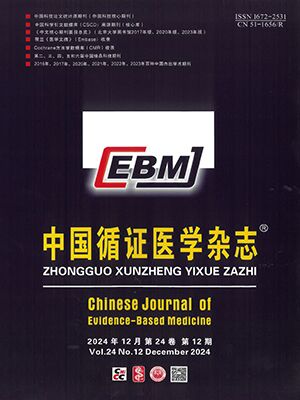| 1. |
Health WCoMa. Macroeconomics and health: investing in health for economic development. Report of the Commission on Macroeconomics and Health: Geneva: World Health Organization, 2001.
|
| 2. |
Organization PAH. Access to high-cost medicines in the Americans: situation, challenges and perspectives. Area of technology, health care and research, essential medicines and biologicals unit (THR/EM): Washington, D.C. 2010.
|
| 3. |
国际人权文书. 第 14 号一般性意见: 享有能达到的最高健康标准的权利(第十二条). 2000. Available at: http://www. humanrights.cn/html/2014/1_1009/1878.html.
|
| 4. |
黄勇. 基于患者角度的我国基本药物行为可及性研究. 中国医药指南, 2013, 11(22):721-723.
|
| 5. |
WHO. Medicines strategy: framework for action in essential drugs and medicine policy 2000-2003. WHO: Genva, 2001.
|
| 6. |
国家统计局. 2016 年全国居民收入稳步增长居民消费进一步改善. [2017-01-20]. Available at: http://www.stats.gov.cn/tjsj/ sjjd/201701/t20170120_1456174.html.
|
| 7. |
中华慈善总会. Available at: http://www.chinacharityfederation.org/.
|
| 8. |
Clinicaltrials. Available at: www.clinicaltrials.gov.
|
| 9. |
健康界. 海南" 进口药”特区: 国外癌症新药首次临床应用. 搜狐健康. [2016-11-02]. Available at: http://mt.sohu.com/20161102/ n472097187.shtml.
|
| 10. |
联合国. 千年发展目标差距工作组 2012 年报告. Available at: http://www.un.org/zh/millenniumgoals/reports.shtml.
|
| 11. |
药品价格 315 网. Available at: https://www.315jiage.cn/.
|
| 12. |
国家食品药品监督管理总局. 药物临床实验登记与信息公示平台. Available at: http://www.chinadrugtrials.org.cn/.
|
| 13. |
翁新愚. TRIPS 协约与药品专利. 中国药学杂志, 2003, 38(5):389-390.
|
| 14. |
杨莉, 李野, 岳晨妍. 浅析《与贸易有关的知识产权协议》体制下的专利制度与药品价格. 中国药房, 2008, 19(10):721-723.
|
| 15. |
Chee YL, 陈惜平. 知识产权与不太昂贵药品的可及性: 一些亚洲国家的经验. 第三世界网络, 2007.
|
| 16. |
国家食品药品监督管理总局药品审评中心化学仿制药生物等效性与临床试验备案信息平台. Available at: http://be. chinadrugtrials.org.cn/index.dhtml.
|
| 17. |
国务院办公厅. 国务院办公厅关于进一步改革完善药品生产流通使用政策的若干意见(国办发[2017]13号).[2017-02-09]. Available at: http://www.gov.cn/zhengce/content/2017-02/09/ content_ 5166743.htm.
|
| 18. |
刘晶晶, 武志昂. 从政府规制理论看" Bolar 例外”. 中国药师, 2016, 19(7): 1382-1384.
|
| 19. |
Todd S. Pfizer's Lipitor getting hit with a new onslaught of generic rivals. Available at: http://www.nj.com/business/index.ssf/ 2012/06/pfizers_lipitor_getting_hit_wi.html.
|
| 20. |
Teerawattananon Y, Tritasavit N. A learning experience from price negotiations for vaccines. Vaccine, 2015, 33(suppl1): 11-12.
|
| 21. |
The Ministry of Public Health and the National Health Security Office Thailand. The 10 burning questions on the government use of patents on the four anti-cancer drugs in Thailand. Nonthaburi: Ministry of Public Health, 2008.
|
| 22. |
Wibulpolprasert S, Chokevivat V, Oh C, et al. Government use licenses in Thailand: the power of evidence, civil movement and political leadership. Global Health, 2011, 7(7): 32-39.
|
| 23. |
袁雪丹, 傅鸿鹏. 国外药品价格谈判机制对中国的启示. 卫生经济研究, 2015, 11(34): 29-33.
|
| 24. |
Ford N, Wilson D, Costa Chaves G, et al. Sustaining access to antiretroviral therapy in the less-developed world: lessons from Brazil and Thailand. AIDS, 2007, 21(Suppl 4): 21-29.
|
| 25. |
楼杜鹃. 药品专利 Bolar 例外条款的发展和应用. 中国发明与专利, 2011, 7(6): 80-82.
|
| 26. |
彭辉. 药品平行进口的福利效应评价: 基于瑞典的实证分析. 北京: 第一届全国博士生知识产权学术论坛, 2010.
|
| 27. |
孙静, 蒋锋, 赵琪, 等. 一个发展中国家实现高值救命药全民可及的成功经验及对我国的启示. 中国药房, 2017, 28(3): 289-294.
|
| 28. |
Anita K. Wagner MB, Anthony D, et al. Chapter 4 – Innovation to ensure better access to medicines Authors. Case studies: Rosarin Sruamsiri, Netnapis Suchonwanich (E2 Access Program in Thailand). In: Medicines in Health Systems: Advancing access, affordability and appropriate use. WHO: Geneva, 2014.
|
| 29. |
孙静, 金平阅, 张春瑜. 卫生立法的国际经验对我国的启示. 中国卫生政策研究, 2016, 9(10): 66-71.
|
| 30. |
孙静, 赵红艳, 马丽平, 等. 我国专利保护制度下涉及重大公共健康问题高价药品的经济可及性. 中国循证医学杂志, 2014, 14(5): 509-516.
|
| 31. |
Tannock IF, Hickman JA. Limits to Personalized Cancer Medicine. N Engl J Med, 2016, 375(13): 1289-1294.
|
| 32. |
Prasad V. Perspective: The precision-oncology illusion. Nature, 2016, 537(7619): 63.
|




